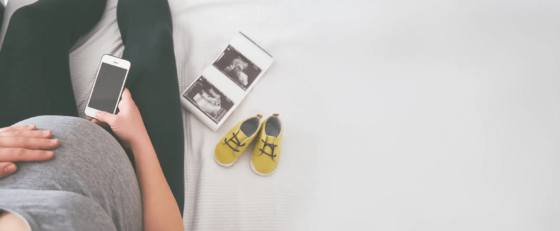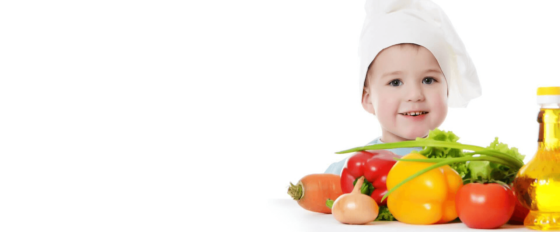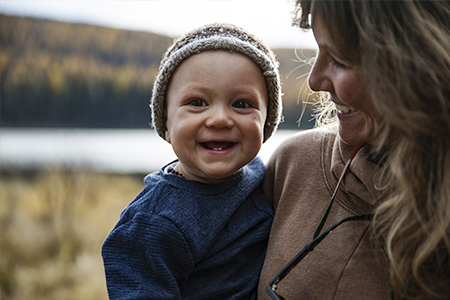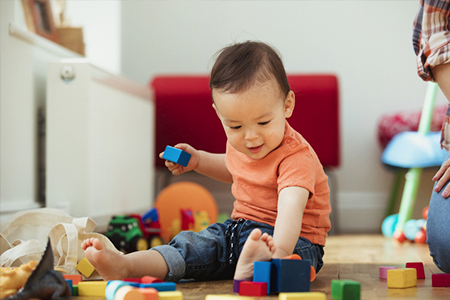Protect yourself from Coronavirus
This is a very stressful time for parents of young children, pregnant women and fathers-to-be. To help your family understand how you can protect yourselves from Coronavirus, we are sharing the World Health Organisation’s (WHO) recommendations on how to protect you and your little one, since you are your baby’s primary source of contact with the outside world. By following their simple methods and rules, together you can limit the risks of spreading the Coronavirus.
We also have expert answers to the most frequently asked questions to the WHO, about pregnancy, breastfeeding and bottle-feeding, to help guide you and your child especially during what can be a stressful time.
1. Wash hands regularly
The Coronavirus is spread by human contact. Therefore, quite simply washing your hands is the best way to protect against it. So wash your hands before touching your tot and insist to anyone that’s about to touch your baby, to wash their hands as well.
Unfortunately our babies can’t wash their own hands. Well not yet anyway. So make it a regular part of play or mealtimes and thoroughly wash your hands together using an alcohol-based hand rub or soap and water.
Why? This will kill any viruses that may be on our hands and instantly stop them from infecting you and your child.
2. Limit get-togethers
Our babies are gorgeous and often attract people’s attention. Therefore, as their parent it is your responsibility to minimise interactions between your little one and other people. Basically, stopping people from picking them up and cuddling them might seem harsh at first. But it helps stop the spread of the virus.
As well as avoiding close contact, maintain a safe distance of at least 1 metre between yourself and anyone who is sick and coughing or sneezing.
Why? Because when someone coughs or sneezes, they spray small droplets from their nose or mouth which may contain the virus. If you or your child are nearby, you can breathe in the droplets, including the COVID-19 virus.
3. Avoid touching the eyes, nose and mouth
We tend to touch many different surfaces throughout the day. We also like to touch our babies who in turn like to touch their faces. So for anyone that’s about to handle your tot (and that includes yourself), make sure they’ve thoroughly washed their hands.
Why? These surfaces can be contaminated with the Coronavirus and once the virus has arrived on the hands it can easily be transferred into the body via the mouth, nose or eyes when we touch our face.
We can’t stop touching different surfaces or our baby’s curiosity. But we can halt the passage of the virus into the body by not touching our or our baby’s face.
4. Practice good respiratory hygiene
Make sure you, and the people around your little one, follow good respiratory hygiene. This means covering the mouth and nose with a bent elbow or tissue when coughing or sneezing. Then disposing of used tissues immediately.
Why? Droplets spread the virus. By following good respiratory hygiene, you protect your baby and the people around you from viruses such as cold, flu and COVID-19.
5. Feeling sick? Seek medical care early
It’s simple – stay at home if you feel sick. If you have the early signs of a fever, cough and difficulty breathing, seek medical attention in advance. For more information, follow the directions of your local health authority.
Why? National and local authorities will have the most up-to-date information on the situation in your area. Calling in advance will allow your health care provider to quickly direct you to the right health facility. This will also protect you and help prevent further spreading of the virus and other infections.
6. Follow a safe and hygienic preparation of food
Use separate chopping boards for raw and cooked foods. Also wash your hands between handling raw and cooked food.
You don’t have to avoid meat. Just be smart and make sure all the meat is cooked thoroughly and handled properly during preparation.
Why? Because as a parent we cook for ourselves, our family and our baby and the Coronavirus can be spread by ingestion. Therefore, it’s even more important for the person who’s preparing food to safety procedures while cooking.
7. Stay informed and follow advice
Because your little one can’t read the news, it’s very important for you to be aware of the latest information on the COVID-19 outbreak in Australia available through the Commonwealth Department of Health. For global guidance, please consult the World Health Organisation (WHO) website. Seek advice from trustworthy, reliable sources for you and your baby and contact your healthcare professional as soon as you have any concern for you or your little one.
This information is not intended to be a substitute for professional medical advice. Always seek the advice of a healthcare professional if you have any questions or concerns.

Want to know more? Call us on 1800 842 098 or Live Chat now.
Track your baby’s development
Get month-by-month advice on your baby’s development



